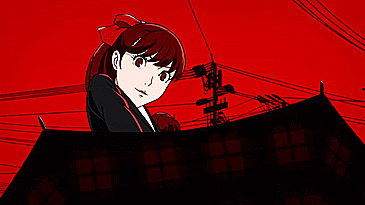I was bored watching Wonder Woman.

I was bored watching Wonder Woman.

| Jaicee said: Well as the self-respecting feminist woman on this message board (just to reassert my distinctive credentials there ;) ), for me a feminist movie isn't simply one that stars a female character in the kind of role we more often see male characters in, like an action-hero role, for instance. That's not really enough to makes something a feminist movie for me. When I think of the term "feminist movie", I think of a movie that thematically revolves around, or at least substantially includes, advocacy for the advancement of women. Is it an advocacy movie to one or another degree, in other words? Let me clarify with some (relatively) big-name examples from recent years: Anyway, as to the matter of idealization, I firmly believe that movies starring Gal Gadot and ones starring Melissa McCarthy can coexist in the same world without terribly diminishing each other. And as to the quality of Patty Jenkins' movie versus James Cameron's pictures...well I would just point out that the latter are not exactly all masterpieces, frankly, and that Wonder Woman, by any reasonable definition, qualifies as an above-average picture artistically, especially for its genre. And I don't mind Wonder Woman having some minor flaws. It's still too fun for me not to really, really enjoy! :) |
I'm almost offended that I tried to make a substanent nuanced comment that had almost nothing to do with feminism(an area I was actually trying to avoid) ... and the response I get is "this is what a feminist movie really is..."
I don't really care if it's feminist or not. All I said in my original comment was I wasn't a feminist. I didn't really talk about feminism much at all. I even said that Wonder Woman isn't really progressing anything as a film, and gave a much more nuanced answer to what possible progressive effect it could have. I can't say I really care about labels.
Also, Mad Max, and for the most part Ghostbusters, were not feminist films.
| AngryLittleAlchemist said: I'm almost offended that I tried to make a substanent nuanced comment that had almost nothing to do with feminism(an area I was actually trying to avoid) ... and the response I get is "this is what a feminist movie really is..." I don't really care if it's feminist or not. All I said in my original comment was I wasn't a feminist. I didn't really talk about feminism much at all. I even said that Wonder Woman isn't really progressing anything as a film, and gave a much more nuanced answer to what possible progressive effect it could have. I can't say I really care about labels. Also, Mad Max, and for the most part Ghostbusters, were not feminist films. |
Okay nevermind. :P Sorry.
Anyway, where do you, as a male outsider to the movement, get off defining it? Just curious! That just seems kind of arrogant to me.
I don't think it would be an issue for Wonder Woman to be an attractive and fairly unsurprising female lead if Wonder Women wasn't treated like some feminist masterpiece. Yes, female leads can be everything (including generic), but I'm not going to celebrate you for asserting your agency to be just like everyone else.
| Jaicee said: Okay nevermind. :P Sorry. Anyway, where do you, as a male outsider to the movement, get off defining it? Just curious! That just seems kind of arrogant to me. |
Where do I get off? Hold up. First of all, it was you who came to ME with a "this is feminist and this is not" dialogue. I didn't want that.
Second of all, I'm a consumer and I'm able to look at things from other perspectives, and Mad Max most certainly is not feminist. Ghostbusters....eh.....I mean Paul Feig is the most feminist male ever, so it's hard to say. That being said, if Paul Feig is a male director making a feminist movie, where does he get off defining what feminism is...amirite?
Third of all, if i'm a male ... and i'm getting off ... it only makes sense that where I "get off" is my penis, right?
Jaicee said:
Okay nevermind. :P Sorry. Anyway, where do you, as a male outsider to the movement, get off defining it? Just curious! That just seems kind of arrogant to me. |
People don't need to be a club carrying member to criticize that club or have an equal opinion on issues related to that club. That's just a very lazy justification in why you shouldn't have to defend an opinion.

AngryLittleAlchemist said:
Also, Mad Max, and for the most part Ghostbusters, were not feminist films. |
Mad Max Fury Road was pretty explicitly feminist in the end. It was feminist in the most superficial way imaginable but it was acknowledged by George Miller. It being so superficial is why the pre-release backlash was so overblown.
Trentonater said:
Mad Max Fury Road was pretty explicitly feminist in the end. It was feminist in the most superficial way imaginable but it was acknowledged by George Miller. It being so superficial is why the pre-release backlash was so overblown. |
No he didn't. His response to it was it was never intended to be feminist, and the themes were never-overt. What happened was it was "all story-driven, and the rest followed" as he put it.
Considering the article he mentions it in is literally titled "Mad Max Director George Miller : The Audience Tells You 'What Your Film Is'" I think it's fair to say he is a director who plays along with what the audience feels. In general interpretations, especially ones seen as progressive, are rarely shot down by directors because they paint a positivie light. So wha he's saying is pretty telling. There are some articles though that make it sound way more intentional on George Miller's part than it ever was, because they want to sell a narrative. Having a "strong female characer" was always a necessity to the plot.
I get why we're discussing feminism, since it's connected in ways to what James Cameron did, but again what I want to get out of this discussion in my posts are not if a movie is feminist or not, merely the claims made in the OP. I feel bad that my original post has turned into politics 101.
I get what Cameron was trying to say but honestly it comes off as "look at me! Give me credit! I was doing this years before it was cool!". Him criticizing Wonder Woman for being sexy is kinda like saying Thor is too good looking and as such isn't a good character to boot.
Also in fairness, he didn't create the character of Ripley in Aliens. Sarah Connor is a valid one, but last time I checked it wasn't Linda Hamilton on the poster, it was Arnold Schwarzenneger that sold that movie. Female leads in horror movies (and Alien and Terminator are rooted in the 70s/80s slasher movie genre, just with sci-fi thrown in) weren't really that rare. Jamie Lee Curtis in Halloween, the Freddy movies, etc. often had women as the lead.
| AngryLittleAlchemist said:
Anyways, I think it's funny that James used Ripley as an example of his strong female character. You didn't invent the character, and yet she's the strongest female character you've worked with. Haha. |
He wrote the movie where she first started to get any amount character development and the role got a best actress nomination at the oscars. And he used Sarah Conner who is certainly his most complex character.